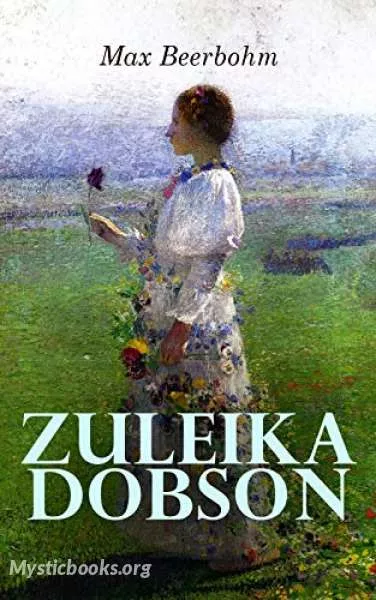
Zuleika Dobson
by Max Beerbohm
'Zuleika Dobson' Summary
Zuleika Dobson—"though not strictly beautiful"—is a devastatingly attractive young woman of the Edwardian era, a true femme fatale, who is a prestidigitator by profession, formerly a governess. Zuleika's current occupation (though, more importantly, perhaps, her enrapturing beauty) has made her something of a small-time celebrity and she manages to gain entrance to the privileged, all-male domain of Oxford University because her grandfather is the Warden of Judas College (based on Merton College, Beerbohm's alma mater). There, she falls in love for the first time in her life with the Duke of Dorset, a snobbish, emotionally detached student who—frustrated with the lack of control over his feelings when he sees her—is forced to admit that she too is his first love, impulsively proposing to her. As she feels that she cannot love anyone unless he is impervious to her charms, however, she rejects all her suitors, doing the same with the astonished Duke. The Duke quickly discovers that Noaks, another Oxford student, also claims to have fallen in love with her, without ever having even interacted with her. Apparently, men immediately fall in love with her upon seeing her. As the first to have his love reciprocated by her (for however brief a time) the Duke decides that he will commit suicide to symbolise his passion for Zuleika and in hopes that he will raise awareness in her of the terrible power of her bewitching allure, as she innocently goes on crushing men's affections.
Zuleika is able to interrupt the Duke's first suicide attempt from a river boat, but seems to have a romanticised view of men dying for her, and does not oppose the notion of his suicide altogether. The Duke, instead pledging to kill himself the next day—which Zuleika more or less permits—has dinner that night with his social club where the other members also affirm their love for Zuleika. Upon telling them of his plan to die, the others unexpectedly agree also to commit suicide for Zuleika. This idea soon reaches the minds of all Oxford undergraduates, who inevitably fall in love with Zuleika upon first sight.
The Duke eventually decides that the only way he can stop all the undergraduates from killing themselves is by not committing suicide himself, hoping they will follow his example. By an ancient tradition, on the eve of the death of a Duke of Dorset, two black owls come and perch on the battlements of Tankerton Hall, the family seat; the owls remain there hooting through the night and at dawn they fly away to an unknown place. After debating whether to follow through with his suicide, while seeming to decide at last to embrace his life as just as valuable as Zuleika's, the Duke receives a telegram from his butler at Tankerton, reporting the portentous return of the owls. The Duke promptly interprets the omen as a sign that the gods have decreed his doom. He proudly tells Zuleika that he will still die, but no longer for her; she agrees as long as he makes it appear that he is dying for her by shouting her name as he jumps into the river. Later the same day, a thunderstorm overwhelms the Eights Week boat races while the Duke drowns himself in the River Isis, wearing the robes of a Knight of the Garter. Every fellow undergraduate, except one, promptly follows suit.
All of the Oxford undergraduates now dead, including, with some delay, the cowardly Noaks, Zuleika discusses the ordeal with her grandfather, who reveals that he too was enamoured by all when he was her age. While Oxford's academic staff barely notice that nearly all of their undergraduates have vanished, Zuleika decides to order a train for the next morning... bound for Cambridge.
Book Details
Language
EnglishOriginal Language
EnglishPublished In
1911Authors
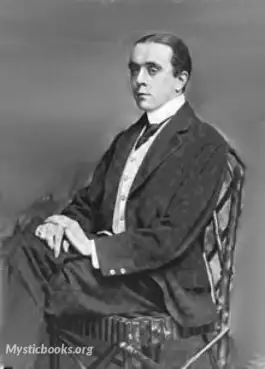
Max Beerbohm
England
Sir Henry Maximilian "Max" Beerbohm was an English essayist, parodist and caricaturist under the signature Max. He first became known in the 1890s as a dandy and a humori...
Books by Max BeerbohmDownload eBooks
Listen/Download Audiobook
- Select Speed
Related books

Light Freights by W. W. Jacobs
It is an exciting collection of short stories that will captivate the imagination of young readers. This book offers a thrilling journey through tales...
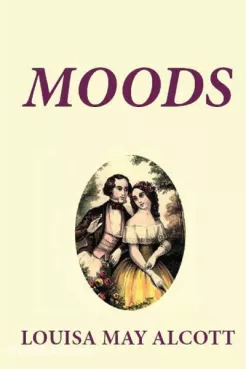
Moods by Louisa May Alcott
A story of love, loss, and redemption. Moods is a novel by Louisa May Alcott that tells the story of Sylvia Yule, a young woman who is struggling to...

Our Village, Volume 1 by Mary Russell Mitford
Step into the enchanting world of rural England as Mary Russell Mitford invites you to "Our Village," a captivating collection of sketches that will t...
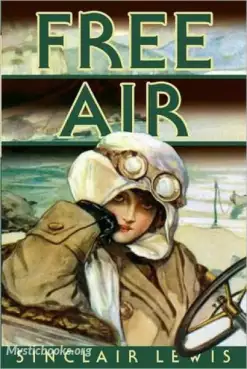
Free Air by Sinclair Lewis
"This cheerful little road novel is about Claire Boltwood, who, in the early days of the 20th century, travels by automobile from New York City to the...
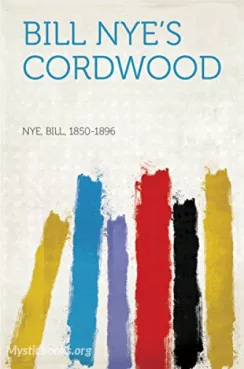
Bill Nye's Cordwood by Bill Nye
"Cordwood is a collection of humorous essays by Bill Nye, the celebrated humorist and journalist. In these essays, Nye takes on a wide range of topics...
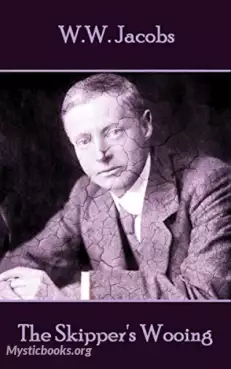
The Skipper's Wooing by W. W. Jacobs
The crew of the ship come together in a syndicate to find the missing father of the lady whom their skipper should like to favour. Their resulting esc...
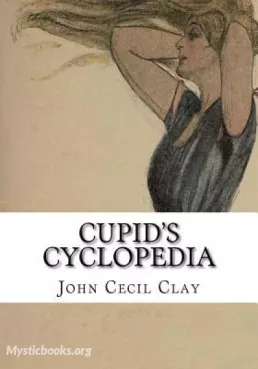
Cupid's Cyclopedia by Oliver Herford
"Cupid's Cyclopedia" is a captivating anthology of poetic brilliance and humorous observations by the renowned writer and illustrator, Oliver Herford....
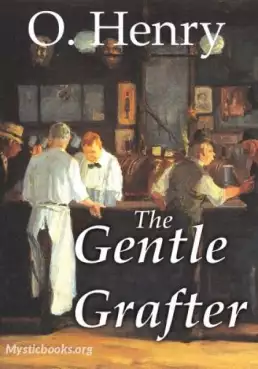
The Gentle Grafter by O. Henry
If Jefferson "Parleyvoo" Pickens had appeared in print just a few years later, he might have been the "Gentle Grifter" instead of the "Gentle Grafter"...
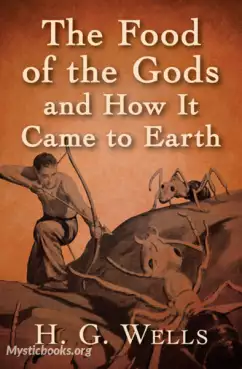
The Food of the Gods and How it Came to Earth by H. G. Wells
The Food of the Gods and How It Came to Earth is a science fiction novel by H. G. Wells, first published in 1904. Wells called it "a fantasia on the c...

Days With Sir Roger de Coverley by Richard Steele
This is a charming book that takes readers on a delightful journey through the life and adventures of the beloved character, Sir Roger de Coverley. Wr...
Reviews for Zuleika Dobson
No reviews posted or approved, yet...